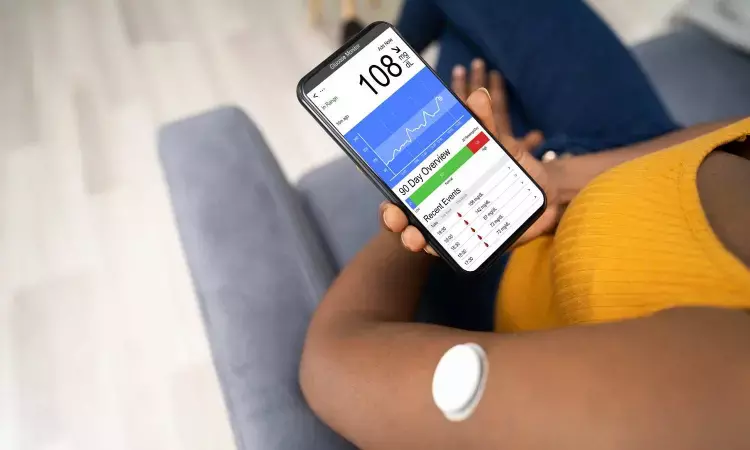- Home
- Medical news & Guidelines
- Anesthesiology
- Cardiology and CTVS
- Critical Care
- Dentistry
- Dermatology
- Diabetes and Endocrinology
- ENT
- Gastroenterology
- Medicine
- Nephrology
- Neurology
- Obstretics-Gynaecology
- Oncology
- Ophthalmology
- Orthopaedics
- Pediatrics-Neonatology
- Psychiatry
- Pulmonology
- Radiology
- Surgery
- Urology
- Laboratory Medicine
- Diet
- Nursing
- Paramedical
- Physiotherapy
- Health news
- Fact Check
- Bone Health Fact Check
- Brain Health Fact Check
- Cancer Related Fact Check
- Child Care Fact Check
- Dental and oral health fact check
- Diabetes and metabolic health fact check
- Diet and Nutrition Fact Check
- Eye and ENT Care Fact Check
- Fitness fact check
- Gut health fact check
- Heart health fact check
- Kidney health fact check
- Medical education fact check
- Men's health fact check
- Respiratory fact check
- Skin and hair care fact check
- Vaccine and Immunization fact check
- Women's health fact check
- AYUSH
- State News
- Andaman and Nicobar Islands
- Andhra Pradesh
- Arunachal Pradesh
- Assam
- Bihar
- Chandigarh
- Chattisgarh
- Dadra and Nagar Haveli
- Daman and Diu
- Delhi
- Goa
- Gujarat
- Haryana
- Himachal Pradesh
- Jammu & Kashmir
- Jharkhand
- Karnataka
- Kerala
- Ladakh
- Lakshadweep
- Madhya Pradesh
- Maharashtra
- Manipur
- Meghalaya
- Mizoram
- Nagaland
- Odisha
- Puducherry
- Punjab
- Rajasthan
- Sikkim
- Tamil Nadu
- Telangana
- Tripura
- Uttar Pradesh
- Uttrakhand
- West Bengal
- Medical Education
- Industry
SGLT2 inhibitors use lowers cancer risk in patients with diabetes

Taiwan: Patients with diabetes who receive sodium-glucose cotransporter-2 (SGLT2) inhibitors are at a significantly lower risk of cancer, a new study published in the Journal of Diabetes and its Complications has shown.
There has been a substantial rise in the burden of diabetes mellitus, primarily through its atherosclerotic cardiovascular impact. Diabetes is also linked with cancer development, and this phenomenon's mechanism is complicated. With the proposal of novel antidiabetic agent SGLT2 inhibitors and its several pluripotent effects, identifying pharmacologic intervention's role in incident cancer among diabetes patients is genuinely novel and exciting. It holds importance for quality control efforts and health care delivery.
Against the above background, Wei-Syun Hu and Cheng-Li Lin from China Medical University, Taichung, Taiwan, aimed to evaluate the relationship between SGLT2 Inhibitors and incident cancer risk among diabetes patients with the examination of the large size of the database and the clinical importance of the question concerned.
The researchers identified a non-SGLT2 inhibitor cohort of 325,989 patients and an SGLT2 inhibitor cohort of 325,990 patients between 2016 and 2019. The study's primary interest was cancer occurrence. Hazard ratios (HRs) were estimated using univariate Cox proportional hazard models.
The study's strength was an extensive database. Besides, the study design is straightforward, and the study's findings were helpful for clinical practice in figuring out the risk of cancer in SGLT2 Inhibitor users among diabetic subjects.
The two cohorts had a similar distribution between males (49.6 %) and females (50.4 %). In the SGLT2 inhibitor cohort, most patients were in the 50–64 age group (57.8 %) and were males (57.8 %). The mean ages in the non-SGLT2 and SGLT2 inhibitor cohorts were 58.6 ± 12.3 years and 58.5 ± 12.3.
The study found that patients receiving an SGLT2 inhibitor (adjusted HR = 0.79) had a significantly reduced risk of contracting cancer than patients without receiving an SGLT2 inhibitor.
"The study's findings were helpful for clinical practice to figure out the cancer risk in SGLT2 Inhibitor users among diabetic subjects," the authors concluded.
Reference:
Hu, W., & Lin, C. (2023). Patients with diabetes with and without sodium-glucose cotransporter-2 inhibitors use with incident cancer risk. Journal of Diabetes and its Complications, 108468. https://doi.org/10.1016/j.jdiacomp.2023.108468
Dr Kamal Kant Kohli-MBBS, DTCD- a chest specialist with more than 30 years of practice and a flair for writing clinical articles, Dr Kamal Kant Kohli joined Medical Dialogues as a Chief Editor of Medical News. Besides writing articles, as an editor, he proofreads and verifies all the medical content published on Medical Dialogues including those coming from journals, studies,medical conferences,guidelines etc. Email: drkohli@medicaldialogues.in. Contact no. 011-43720751


